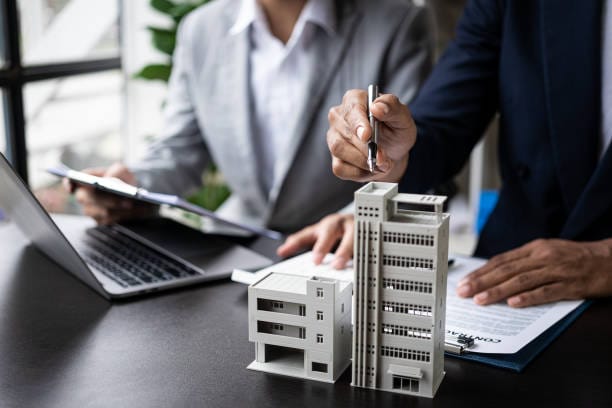Buying land to build your dream home is an exciting project, but it involves several important considerations to ensure that the purchase is a wise investment. Before committing to a land purchase, it is essential to thoroughly understand certain technical, legal, and practical aspects to avoid costly mistakes. While the process may seem complex, with careful planning, you can find the perfect plot of land to bring your vision to life. Here’s what you need to know before taking the plunge.
The first step before buying land is to define your needs and priorities. Location is often the most crucial factor. It is essential to know where you want to live and the type of living environment you seek. An urban plot, for example, will be more expensive but offer proximity to shops, schools, and transportation. Conversely, a rural plot may provide more privacy and tranquility, but it might also mean a greater distance from everyday services. Think about how you want your daily environment to be structured. The size of the land is also a key consideration. Depending on the house you want to build, you will need to determine how much space you want for outdoor amenities, a garden, a pool, or outbuildings. It is also important to consider the land’s accessibility, ensuring it is easily reachable by road and has access to essential utilities such as electricity, water, and sewage systems, either already in place or at a reasonable cost.
Once you have defined your criteria, it is important to conduct a feasibility study. This process involves verifying whether the land is buildable, complies with local regulations, and has no major obstacles that would prevent construction. This can include reviewing zoning laws to determine if the land is designated for residential, commercial, or agricultural use and adhering to local construction regulations. It is also crucial to check for any easements, which are rights of use or passage granted to other parties. Additionally, a geotechnical study may be necessary to analyze soil stability, especially if you plan to build a heavy house or carry out excavation work. Consulting an expert or geologist can help ensure the soil is stable and suitable for construction.
The property title is another crucial aspect to verify before buying land. Make sure the seller has a clear title, free from any claims by other parties. A plot with an unclear or disputed title can lead to future legal complications that could jeopardize your project. A thorough title search conducted by a notary or real estate attorney can provide peace of mind that you are purchasing land without legal issues.
The orientation of the land is another factor not to overlook. Depending on the location, the land’s orientation can influence the natural lighting of your house, energy consumption, and the arrangement of outdoor spaces. A south-facing orientation is generally ideal for maximizing sunlight exposure, which can reduce heating costs during the winter. Moreover, orientation can also affect landscaping. If you want your garden to receive more natural light, this orientation should be prioritized.
Another essential consideration is the cost of purchasing and developing the land. Buying a plot may seem affordable at first, but it is important to accurately estimate total costs. The price of the land itself can be influenced by its location, size, and demand in the area. However, additional costs may arise, such as notary fees, property taxes, registration fees, and, in some cases, servicing fees if the land does not yet have the necessary connections to water, electricity, or sewage systems. If leveling or clearing work is required to make the land buildable, this should also be factored into your budget.
The viability of the land is another criterion to examine before making a decision. In addition to checking access to public utilities, ensure the land is well-connected to transportation infrastructure and not located in a flood-prone area or one susceptible to natural risks, such as landslides. Consulting an environmental expert may be necessary to ensure the land does not pose risks for your home’s construction.
Another factor to consider is the environmental impact of purchasing the land. Some plots are located in protected areas or have strict regulations on construction, particularly in natural zones or near water. Before buying, investigate the environmental restrictions that may limit how you can develop the land or build on it. Some regions enforce strict standards to preserve biodiversity, wildlife, or landscapes. It is crucial to be aware of these rules to avoid potential complications with local authorities.
The aesthetic aspect and the view offered by the land are also important elements for many buyers. If the view is a priority for you, ensure it will not be obstructed by future constructions. You should also consider the privacy of the plot: if it is very close to neighbors or busy roads, this could affect the tranquility of your future home. Some people prefer more isolated plots, while others favor proximity to neighbors or amenities.
Finally, once you have identified a plot that meets your criteria, it is important not to rush your decision. Take the time to visit the land multiple times at different times of the day and under various weather conditions to thoroughly evaluate the environment and ensure the plot meets your expectations. Talk to neighbors and the local community to learn about the neighborhood and find out if there are any development projects in the area that could influence the land’s value in the long term.
In conclusion, buying land to build your dream home is an exciting step that requires careful preparation and thoughtful consideration. By taking into account geographical, legal, environmental, and financial factors, you ensure an informed choice and invest in a plot that meets your needs and expectations. Purchasing land is not a decision to be taken lightly, but with good planning, it can be the first step toward realizing your dream home.

